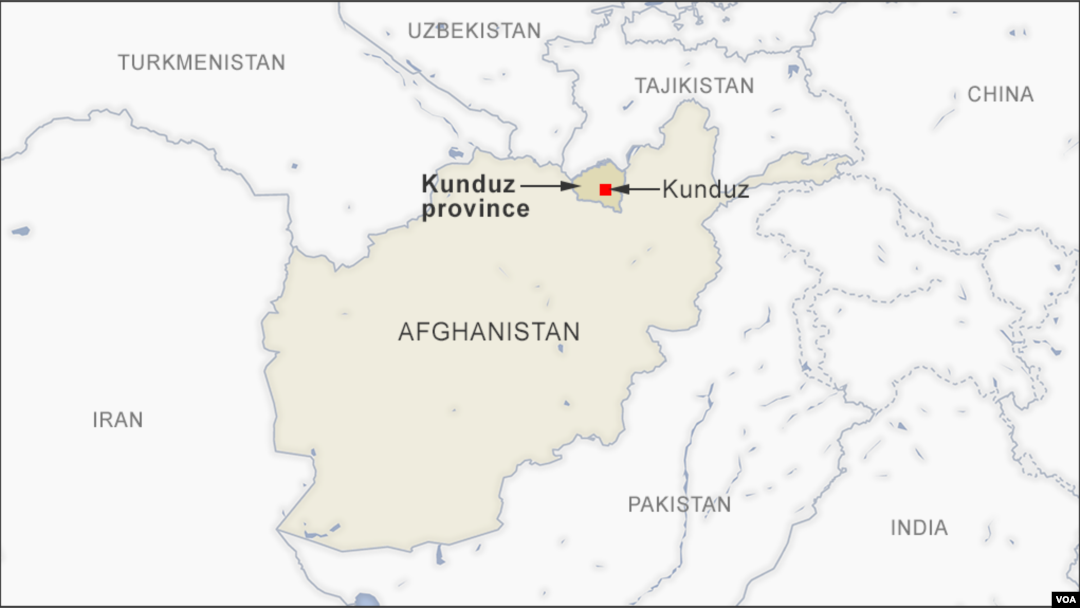Taliban authorities in Afghanistan reported Tuesday that a suicide bomber detonated himself at the entrance to a bank in the northern city of Kunduze, killing at least five people and injuring many others.
Jumaddin Khaksar, a spokesperson for the area police, confirmed the casualties to VOA by phone, saying the early morning powerful blast ripped through a crowd waiting outside the Kabul bank branch to collect their salaries. He added that Afghan civilians and Taliban members were among the victims.
The Taliban-led Interior Ministry in the Afghan capital, Kabul, described the casualty figures as preliminary and promised to share more details later.
Multiple local sources in Kunduz, the capital of the province of the same name, reported a significantly higher death toll.
No group immediately claimed responsibility for the deadly bombing, but suspicions pointed to Islamic State-Khorasan, or IS-K, an Afghanistan-based affiliate of the self-proclaimed transnational Islamic State terrorist network.
SEE ALSO: UN Security Council raises alarm over rising IS-K threat from AfghanistanThe attack comes a day after the United Nations counterterrorism officials warned during a Security Council meeting on Monday that IS-K continues to pose a significant threat to regional and global security.
IS-K has routinely targeted Taliban leaders and clerics as well as members of the Afghan Shi’ite community in Kunduz and elsewhere in the country.
In a rare attack last month, IS-K gunmen ambushed and killed a Chinese mining company official in the nearby northeastern Afghan province of Takhar.
In December, an IS-K-claimed suicide bombing killed Khalil Ur-Rahman Haqqani, the Taliban’s minister of refugees, along with several of his associates inside his ministry in Kabul. This marked the most high-profile assassination since the Taliban regained control of Afghanistan in August 2021, following the withdrawal of U.S.-led NATO troops from the country.
Taliban officials consistently have downplayed the activities of the IS-K in Afghanistan, claiming that their counterterrorism forces have effectively suppressed the group and rendered it incapable of posing a threat to the country or beyond.



